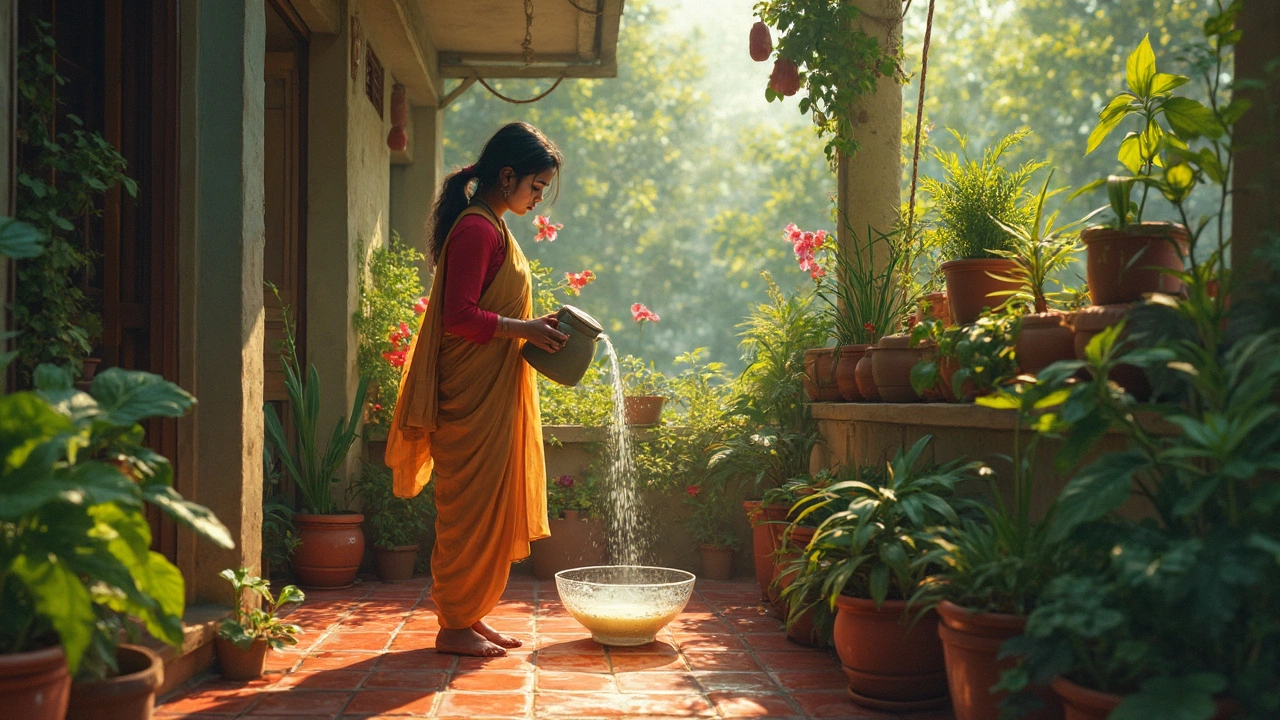Tap water straight from the faucet isn’t always ideal for houseplants. Chemicals like chlorine and minerals can mess with plant health. This article breaks down why neutralizing tap water matters and how you can easily do it at home. You’ll learn safe, quick methods to make tap water friendlier to your indoor green buddies. Ready to see stronger, happier plants?
Water Treatment for Gardens and Farms: Simple Solutions for Healthy Plants
When you think of water treatment, the process of making water safe and suitable for use in agriculture and gardening. Also known as water purification, it’s not just for cities or factories—it’s the quiet hero behind every healthy plant in your garden or farm. In India, where monsoons bring too much water and summers leave it too little, untreated water can wreck your soil, clog your drip lines, and stunt your crops. Tap water with high chlorine, well water full of minerals, or even pond water with algae can do more harm than good if you don’t treat it first.
Drip irrigation, a water-efficient system that delivers moisture directly to plant roots. Also known as drip lines, it’s popular in Indian farms and balconies—but it’s also the first thing to fail when water isn’t treated. Tiny emitters get blocked by sand, rust, or algae. You don’t need fancy filters to fix this. A simple screen filter, occasional flushing, or letting water sit for 24 hours to let chlorine evaporate can make a huge difference. And if your water is hard? Adding a bit of vinegar or using rainwater can soften it naturally. This isn’t just about saving water. It’s about protecting your soil. Over time, untreated water with high salts or minerals builds up in the ground, making it dense and lifeless. That’s why posts on garden soil improvement, adding organic matter and amendments to make soil looser and more fertile. Also known as soil amendments, it’s often the fix for problems caused by bad water. If your soil stays hard even after adding compost, check your water source. You might be feeding your plants minerals they can’t use, while starving them of oxygen.
Water treatment doesn’t mean buying expensive gadgets. It’s about understanding what’s in your water and adjusting. Farmers in Tamil Nadu let water sit in open tanks before using it. Gardeners in Pune filter runoff through gravel. In Delhi, many mix rainwater with tap water to balance pH. These aren’t secrets—they’re smart, simple habits. The posts below show you exactly how others in India are solving real water problems: fixing clogged emitters, choosing the right filters, treating water for seedlings, and even using natural methods to remove contaminants. You’ll find practical fixes for balcony gardens, small farms, and terrace plots—all tested in Indian conditions. No theory. No fluff. Just what works.
